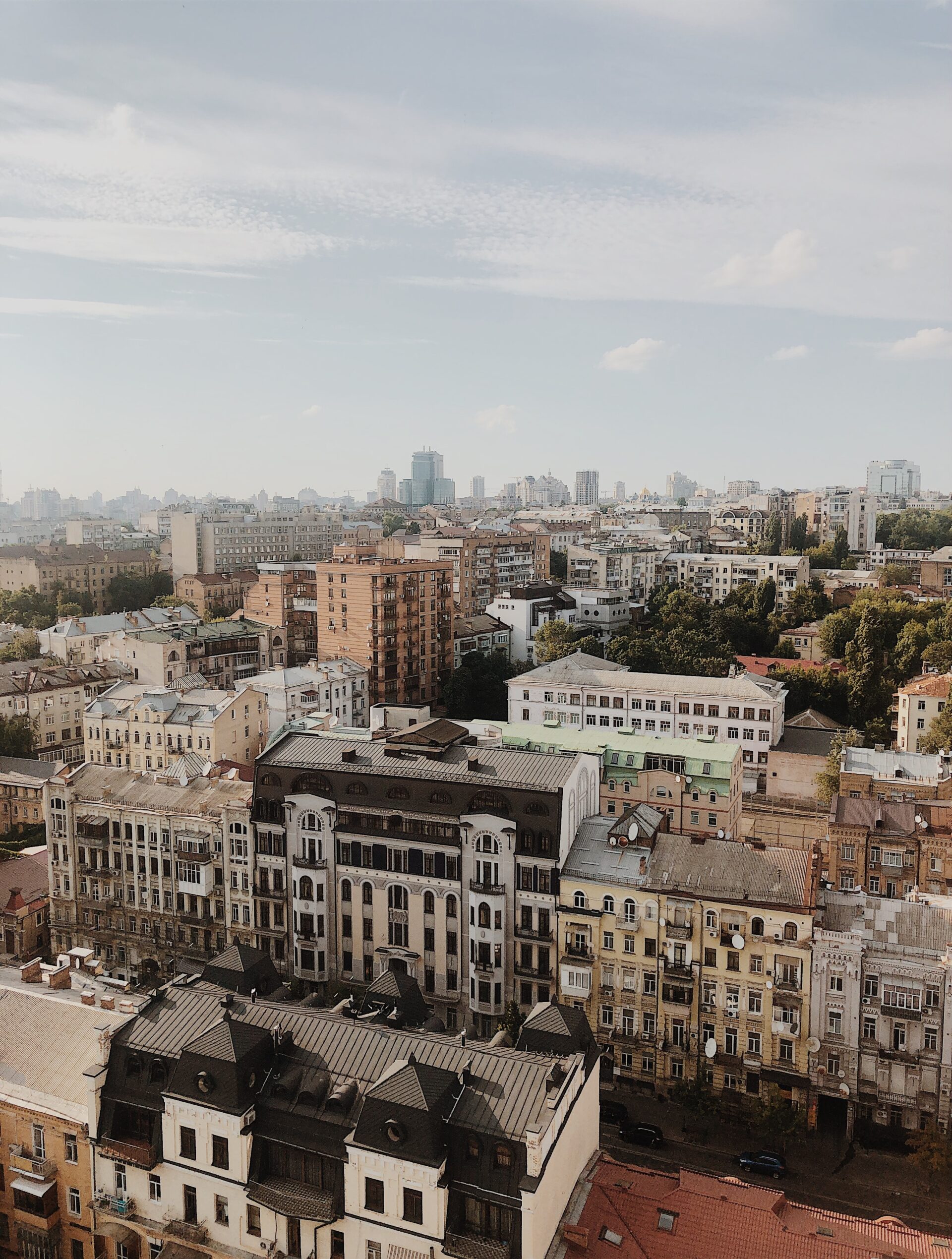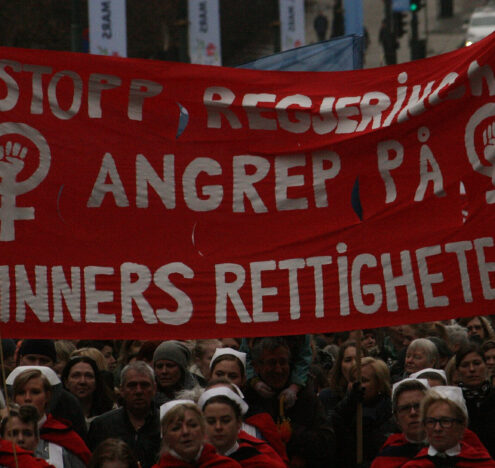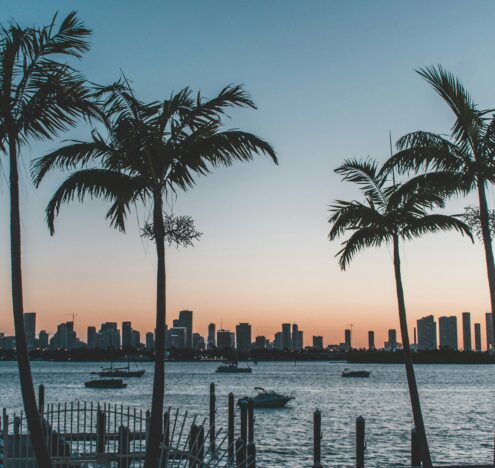“Decolonization does not have a clear start or an end,” said Mariam, “For it to happen, we first must come to terms with our own history and suffering that comes with it.”
“Unfortunately, there is no algorithm we can just follow,” she added, “No decolonization process is the same, and it is especially tricky for Ukraine as a former white colony.”
Mariam Naiem is a cultural researcher. Through her work, she is educating the world about Ukraine through a post-colonial lens. A Ukrainian of Afghan origin, Mariam tries to shed light on cultural aspects of the Russian war and decolonize discourse about Ukraine.
Mariam spoke of decolonization long before the concept became well-known among Ukrainians. While experts and intellectuals spoke of Russian imperialism toward Ukraine for a long time, it was only after 2014, and, most notably, with 2022 Russia’s war, that decolonization became a mainstream topic for reflection in Ukraine’s society.
Even now, the concept remains difficult.

“The process of decolonization is subjective,” Mariam said, “It has no algorithms, so we need to analyze what elements work better for Ukrainian society around decolonial discourse. And then, we need to learn how to communicate this to foreigners.”
For the first time in the country’s recent history, Ukrainians get a chance not only to explain their history to the world, but also to get people to listen. Prior to the 2022 Russian war, there was little interest in Ukraine globally, and the little news that did appear was mostly shaped by pro-Russian and imperialist narratives. Now, there are many voices like Mariam’s which are working on bringing Ukrainian perspectives forward; and these voices are getting more recognition.
Understanding the Legacy of Empire
“The idea that Ukraine is a post-colonial nation existed among scientists for a long time,” Mariam said, “However, it was often ignored by the general public or international audiences. It was in 2022 that a need arose to explain very concretely why Russia invaded Ukraine.”
As the expert explained, the Russian full-scale invasion was the catalyst for this renewed understanding. The war had no political or economic sense, and it carried few benefits for Russians; that was the reason that many Ukrainians refused to believe that it was imminent before the invasion. However, the war made perfect sense from the imperialist prism.
“For Russians, it would be much more logical to continue living with annexed Crimea and promote narratives about ‘Russia’s greatness,’” Mariam explained, “Starting a big war was illogical in this case; but if you add Russian imperialism to the equation, everything becomes clear.”
“That is why when we speak of decolonization, we understand that Russia is not a [former] empire, but it remains an empire,” she added, “It continues its imperial existence, and perceives Ukraine as a colony.”
In Mariam’s opinion, Ukraine remained Russia’s colony for much longer than many realized. It was first colonized by the Russian Empire in the mid-17th century, and then, continued to be a colony of the USSR, similar to other Soviet republics. What’s more, given the many interventions of the Russian state in Ukraine’s affairs such as financing pro-Russian politicians and launching economic warfare against Ukraine’s pro-European leadership in the mid-2000s, Ukraine acted as Russia’s neo-colony in the modern period all the way until 2014. Then, in 2014, Ukrainians organized the Revolution of Dignity, which, in many ways, manifested their desire to break away from Russia and its influence.
Colonialism in the Modern Era
“There is imperialism, and there is neo-imperialism, or neo-colonialism,” Mariam explained, “Colonialism simply put is when I go to your house with cops and demand you to let me live in there; otherwise, I will kill you. But, if I bribe your landlords, and they, without you knowing, give me all your house resources, then we’re talking about neo-colonialism. This is when one country bribes or manipulates political elites of another country, and this way, another country lives for the benefit of the empire. Empires do not wish their colonies to develop independent political elites, so they destroy them.”
Given Russia’s continuous presence in Ukraine’s information space and its regular meddling in domestic affairs — such as the economic wars in the early 2000s, the presence of the Russian military in Crimea, and the financing of pro-Russian politicians — the Ukrainian society was strongly influenced by pro-Russian narratives and often supported policies and decisionmakers acting against Ukraine’s interests that rather benefitted Russia. For example, society was split over its desire to join the EU and NATO due to pro-Russian narratives that painted the West in a negative light.
This also explains why talking about decolonization and Russia’s imperial legacy was not part of Ukraine’s education curriculum, and why so many Ukrainians are only starting to address these issues now when this legacy is more pronounced than ever.
“Decolonization has two dimensions,” Mariam said, “The first come is institutional and state-driven, and the other one is personal. Without the state implementing decolonization policies, this process is extremely slow.”
Whitewashing Russian Colonialism
In Russia, the imperial legacy is celebrated and promoted, and Russia’s state TV continually streams praise for Russia’s imperial legacy. Russia also lobbies for the legitimacy of its territorial claims toward its former colonies on the international stage, such as misappropriating Ukrainian artists as Russian and advertising imperialism through beauty pageants like Miss Universe.
This contrasts sharply with the way colonialism is approached in many former European empires, where the past is viewed from a critical lens. “Russian colonialism receives less criticism than, for example, British, and there are many reasons for that,” Mariam explained, “There is post-colonial theory which is often linked with Marxism. As a lot of intellectuals working on post-colonial theory were in some ways Marxists, they had sympathies toward the Soviet Union. The USSR in its propaganda very clearly emphasized that they were an anti-colonial entity.”
“What’s more, when we analyze the definition of Russian imperialism, the first person who started using it was Vladimir Lenin,” the expert added, “Lenin applied the term in Ukraine’s context stating that ‘we need to help get rid of Russian imperialism.’ With this, he aimed to gain the trust of Ukrainian political elites so they would support Communists. Many intellectuals believed that the USSR was anti-imperialist.”
In addition, there is a greater historical context. As the USSR existed alongside fascism and Nazism, Soviet propaganda was very active in whitewashing itself as anti-colonial — despite having all the features of an empire. Thus, former Soviet republics which managed to regain independence in the nineties should be referred to as post-colonial states, as Mariam put it.
Atypical Colonies
A big emphasis of Russian propaganda is claiming that Ukrainians are Russians and that Ukraine belongs to Russia. This false statement has been picked up by many Western intellectuals to justify Russia’s war and reject the evidence of Russian imperialism.
“One of the reasons that some Western political scientists don’t perceive Ukraine as a colony is due to the ‘overseas theory’ which implies that a colony must be far away from the imperial center, ideally separated by water,” Mariam explained.
“Russia simply devours countries next to it, and this way, it expands its notion of itself.”
In addition, colonialist discourse often frames colonies as territories with non-white populations. “There are political scientists who think that white-majority colonies do not exist,” Mariam said, “In this context, Ukraine stands out because it’s close to Russia geographically, and the majority of Ukrainians are white. This is a problem because Russia is different from many other empires. For example, when the UK colonized India, they did not claim that Indians were British. Russia instead simply devours countries next to it, and this way, it expands its notion of itself.”
“In this context, Ukraine or Belarus do not have many differentiating factors from Russia besides language,” the expert continued, “We look similar, we are majority Christian Orthodox, and we are close geographically. So, language is the main demarcation sign between us and the empire. Language is vital for this separation.”
Russification, a policy of replacing local languages with Russian, was aimed at exactly that: destroying the unique languages which separated the empire from its colonies. Russification lasted for centuries and continued in independent Ukraine, due to Russian interference in Ukraine. It started being addressed only after the Revolution of Dignity in 2014 which profoundly changed the Ukrainian society.
Decolonial Catharsis
“The Revolution of Dignity was a decolonial catharsis moment for Ukraine,” Mariam explained, “The revolution was about separating ourselves from Russian imperialism. It was the moment when we decided that we did not want to live like before anymore.”
Decolonial catharsis marks a moment when the colonized choose to break with the colonizers, and it often happens thanks to the presence of new independent political elites. In 2014, Ukrainians still lacked such political leaders, so the Revolution of Dignity — a mass movement that ousted the pro-Russian government from power — was carried out by society as a whole, and not specific parties or decision-makers.
“Even without widely accepted political elites, Ukrainians were so willing to get out of the empire, that they created a revolution,” Mariam stressed, “It’s very hard to do without the leaders, and this is a proud moment for Ukrainian society which is one of the reasons not to feel like a victim. The unity of Ukrainian society back then surprised me, and it keeps on surprising me as it still lasts.”
Revisiting History
Ukraine shares similar experiences with other countries colonized by Russia, such as former Soviet republics. As Mariam suggested, all these nations can work together as they have evidence that both modern Russia and its previous forms — such as the USSR — are imperial entities. “This will give us a notion that we are not alone in this, and we’re all working toward decolonization,” she added.
The first step, however, is domestic. As Mariam put it, before talking about its colonial past to the world, Ukrainians need to understand their history first. For example, Ukraine still lacks a systematic discussion on its collective trauma; and decolonization discourse is missing from education programs in schools or unis.
“We cannot change history, but we can change our attitude toward it,” she proceeded, “Yes, we were a colony of the USSR, but it does not change that we always had Ukrainian artists and scientists, and this led to cultural developments to some extent. It is necessary to analyze what we gained in culture despite the oppression of the Soviet Union and what we developed despite all these obstacles. We need to analyze what we gained from this experience, and not only lost.”
“The most important thing is to include the concept of decolonization in our school curriculum,” Mariam highlighted, “Without a change in culture and education institutions, we will keep repeating the same mistakes. We need to build a new Ukraine with new symbols and a new understanding of history which will be more Ukrainian, and not post-Soviet. For this, we need cultural experts and historians to create a new cultural policy that would also be included in our education.”
Some of the existing decolonization policies include language-related laws aimed at protecting the Ukrainian language, which has been discriminated against for centuries. Other examples include creating special quotas for Ukrainian musicians on radio stations; and revisiting the history of Holomodor, a Soviet-led genocide of Ukrainians, and other traumatic parts of history.
As the expert put it, it is not easy to accept one’s past as a colony; there is a lot of stigma around it.
“We need to admit that we were a colony without trying to hide or whitewash history somehow,” she added, “It is painful to understand that we were taken advantage of for centuries. It is hard, but it is important for our understanding.”
“The idea of colonization has been kept in the dark for a long time,” Mariam concluded, “The most vital thing for us is to educate our children about it.”
For Mariam, imperialism is like a disease, and educating youth about it is like giving them a vaccine to fight off this illness.





















